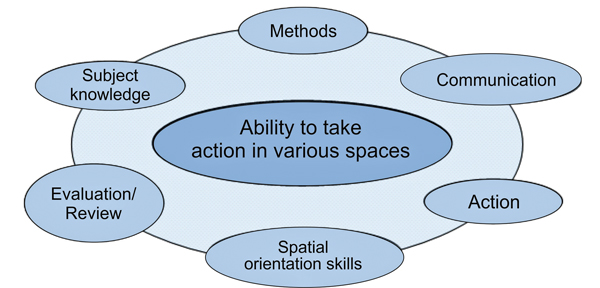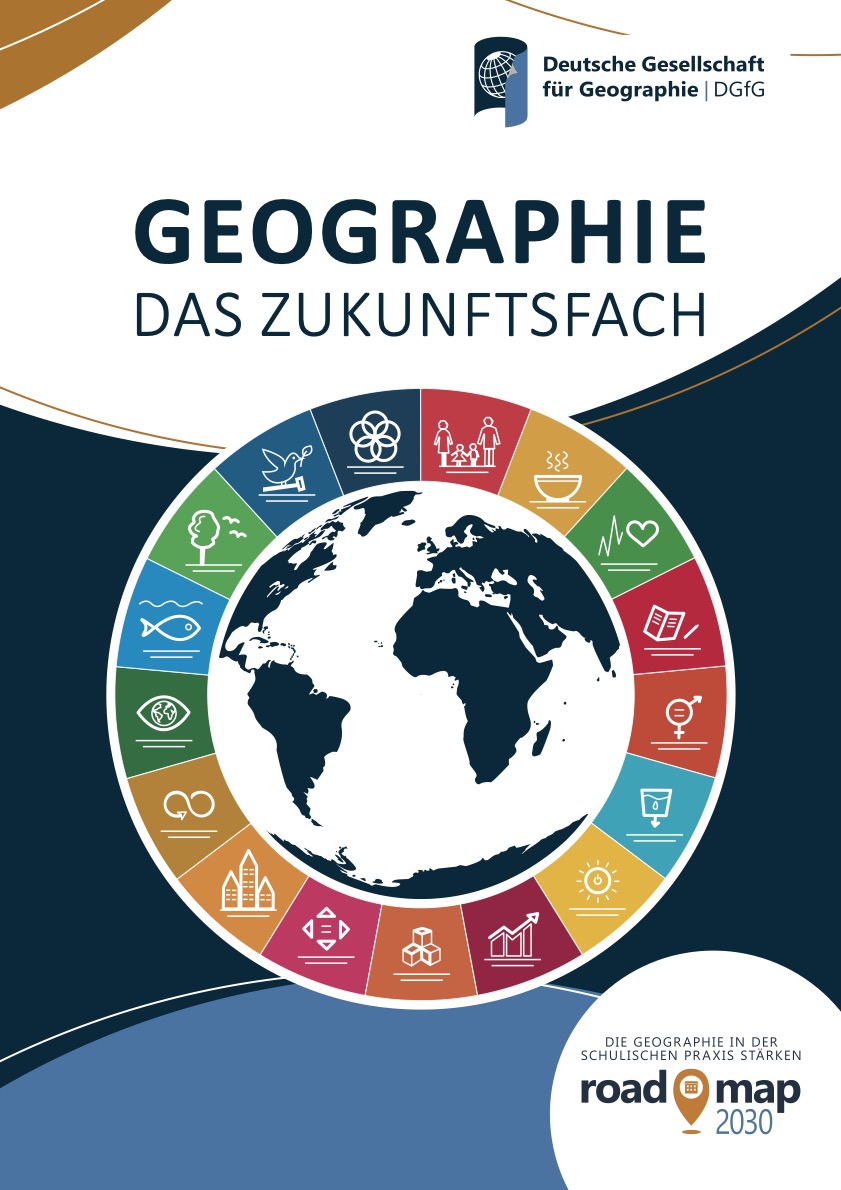Geography Teacher Training
The training of geography teachers concentrates on the teaching and learning of methods to enable future educators to teach geographical knowledge and skills.
This part of the institute focuses on the fundamental theoretical and practical training of future geography teachers. The aim is to prepare future teachers for their later careers in the best possible manner by providing them with the skills required for successful tuition and a modern understanding of the subject area.
Following the evaluation of more than 3,000 studies, John Hattie concluded in 2014 that the teacher was the most important factor by far when it came to “good” tuition. This also means that the pupils’ acquisition of skills in geography lessons clearly depended on the professionalism of the member of teaching staff.
Therefore, this section of the institute also considers itself to be responsible for both the future teaching of geography and our students’ future pupils.
Geography in a School and Teaching Methodology Context - Tasks and Goals of the Subject
The school subject geography is the interface between academic knowledge of the subject area and society, at which geographic and geoscientific topics, perspectives, problems and solutions are transferred to society.
Geographical space as the central point of reference is of central importance to the subject area. The teaching of geography looks at various spaces on earth with varying levels of detail, in order to develop an understanding for correlations between natural phenomena on the one hand and anthropogenic influences and developments on the other.
The top educational goal of the subject is to provide pupils with an understanding for themselves as individuals taking part in space, who are able to shape their own surroundings. This so-called ability to take action in various spaces is accommodated by acquiring subject knowledge and spatial orientation skills, as well as training the following sub-competencies: methods, communication, evaluation/review and action (Deutsche Gesellschaft für Geography (ed.) (2014) Bildungsstandards im Fach Geographie für den mittleren Schulabschluss mit Aufgabenbeispielen. 8th edition. Bonn.).

Sustainability as the Key Objective in a Globalised World
Globalisation has an influence on all areas of today’s society, economy, politics and ecology and is the central challenge of the 21st Century. The “big problems” of today and tomorrow, such as climate change, growing populations, migration, increasing disparities, poverty, natural hazards, dwindling resources or decreasing biodiversity are closely related to globalisation and have a spatial, i.e. a geographical dimension.
Geography as a science of mutual relations between the systems of the human race and nature has the important task of contributing toward sustainable development and thus securing the future of earth and mankind. The main challenge for truly sustainable development is the creation of links between the society, the economy, ecology and culture.
Geography lessons must aim to teach pupils how to understand the fast-moving global developments, provide them with guidance and enable them to play an active role in shaping these processes. The importance of this task is reflected by today’s globalised world in which more and more people feel that they have been left behind, misunderstood, and are no longer part of society. But this also makes it important to stress the chances of globalisation, such as global participation and cultural diversity.
Geography Teacher Training in Greifswald
Apart from the tasks expected of the subject as named above - the teaching of the subject matter - geography teacher training focuses on teaching methodology. This covers the specific actions during, prior to and in follow-up to lessons - the actual “tools of the trade” for teachers. In addition to various teaching methods, students look at questions related to lesson-planning, the definition of goals, and the structuring of lessons during the individual phases, as well as the use of geographical teaching resources during the lessons. The basic theory is then used to develop geography lessons and lesson sequences. During the second half of their training, students apply the teaching methods they have learned to real teaching situations as part of trial teaching practice and during periods of actual teaching practice that are supervised by members of university teaching staff.
Conrad Brinkmann
Room 325 (geology building)
Friedrich-Ludwig-Jahn-Straße 17a
D-17487 Greifswald
Consultation: by appointment
Tel. +49 (0) 3834 420 4507
conrad.brinkmannuni-greifswaldde
Stefanie Rosenthal
Room 322 (geology building)
Friedrich-Ludwig-Jahn-Str. 17a
D-17487 Greifswald
Tel.: +49 (0) 3834 420 4556
stefanie.rosenthaluni-greifswaldde
Consultation hours:
by arrangement
Yasmin Preuß
On parental leave
F.-L.-Jahn-Straße 17a, Room 325
D-17489 Greifswald
yasmin.preussuni-greifswaldde
Consultation hours:

